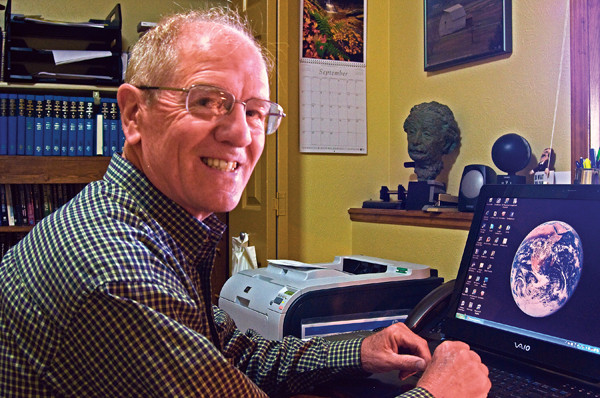
by George A. Seielstad Friday, December 28, 2012

George Seielstad
“Truth, honor, rationality, openness to the contrarian view, engagement with the other, evidentiary arbitration of disputes … are all values that not only make science possible, they also make for a better society, a more open and tolerant society, a more peaceful society.” — Ismail Serageldin, director of the Library of Alexandria in Egypt, as written in the Library of Alexandria publication, “Science: The Culture of Change.”
It’s hard to argue with this point. The conduct of science offers lessons governments would be wise to embrace before they succumb to dysfunction and before economies sink into utter disrepair. Indeed, the principles of scientific thought can help the U.S. and the world solve two major challenges right now: how to stimulate innovation to revive a damaged economy, and how to overcome paralysis in government when pressing decisions about individual nation’s and the world’s future cannot be avoided.
Consider the principles of scientific investigation and how they might be applied to governance.
These are humans’ most distinguishing characteristics. They are not only renewable but unlimited. They are also the characteristics at the heart of the process of discovery. Deciding exactly how a new scientific question might be answered requires considerable ingenuity. It may even call for the invention of a new technology or a new use for an existing technology. These are the reasons why science, technology, engineering and mathematics are so important for economic vitality. Ingenuity and inventiveness are also what governments must have, given that “business as usual” is no longer compatible with a healthy global environment, a robust global economy or a just global society.
Which scientific question to pursue is left to one’s own imagination, providing, of course, its pursuit threatens no harm to others. Likewise, a society’s freedom of inquiry is its protection against blind allegiance to firmly held ideological beliefs.
When answers to scientific questions are found, their discoverers are not only encouraged, but obligated to communicate their conclusions in professional publications. Such communications must present not only the results, but most importantly the evidence for them and how that evidence was obtained. Confirmed evidence that contradicts beliefs or wishes may cause discomfort or inconvenience, but a healthy society and thinking public have no choice but to deal with reality. Humans, after all, are helpless to change the laws of nature, and we are foolish if we think ignoring them, or leaving them undiscovered, will benefit society.
Every scientific claim is open to skepticism. Colleagues are encouraged to confirm or refute the announced findings. It is this possibility of dissent from received wisdom — if that is where the evidence leads — that is science’s most potent self-correcting mechanism. Truth is the ultimate goal; every step toward it is the consequence of verifiable evidence, openly and vigorously debated. Responsible governments likewise must base decisions on the best available and most accurate information. More and more, though, elected officials are failing to do so and are, in fact, often basing decisions on information that is demonstrably false. This is a practice that should not be tolerated in an enlightened society.
Good science — and good government — require dispassionate analysis of reproducible, independently verified evidence, coupled with logically consistent explanations. Being obvious is not the same as being true, and fervent belief is not as relevant as objective reality. The open debate that leads to a scientific consensus is the result of rational, constructive argument. Adherence to objectivity and rationality will benefit every government as well.
No central authority controls the debates that are the essence of the scientific process. Consensus is not the consequence of who shouts the loudest or impugns most effectively those who hold contrary views; instead, consensus is drawn from the ability to independently verify the outcome consistent with the most solid evidence. There exists no more democratic process of adjudication. The world would be better served if government leaders likewise refrained from misusing their authority to distort, suppress or ignore information they judge to be inconvenient — or believe to be inconvenient to their campaign contributors.
All of these scientific principles should be universal core values of any truly modern society. Without them, a society is condemned to stasis, at best, or collapse, at worst. No one is immune to the consequences that may come from ignoring science’s principles and values. Danger arises when citizens enjoy a lifestyle so comfortable that it breeds intellectual slothfulness, contentment with ignorance, fear of change, and obeisance to powerful people who exercise authority to impose their version of reality.
We owe ourselves and our descendants the courage to act upon the basis of objective reality obtained through the kind of honest, rational, evidence-based discourse that characterizes the conduct of science. From that basis, we can calculate likely consequences of our actions, formulate strategies for responding to circumstances, and treat the world with care and respect. Best of all, we can utilize to its fullest the greatest gifts humans have acquired over evolutionary history: those of intellectual curiosity, honesty and revelation.
© 2008-2021. All rights reserved. Any copying, redistribution or retransmission of any of the contents of this service without the expressed written permission of the American Geosciences Institute is expressly prohibited. Click here for all copyright requests.